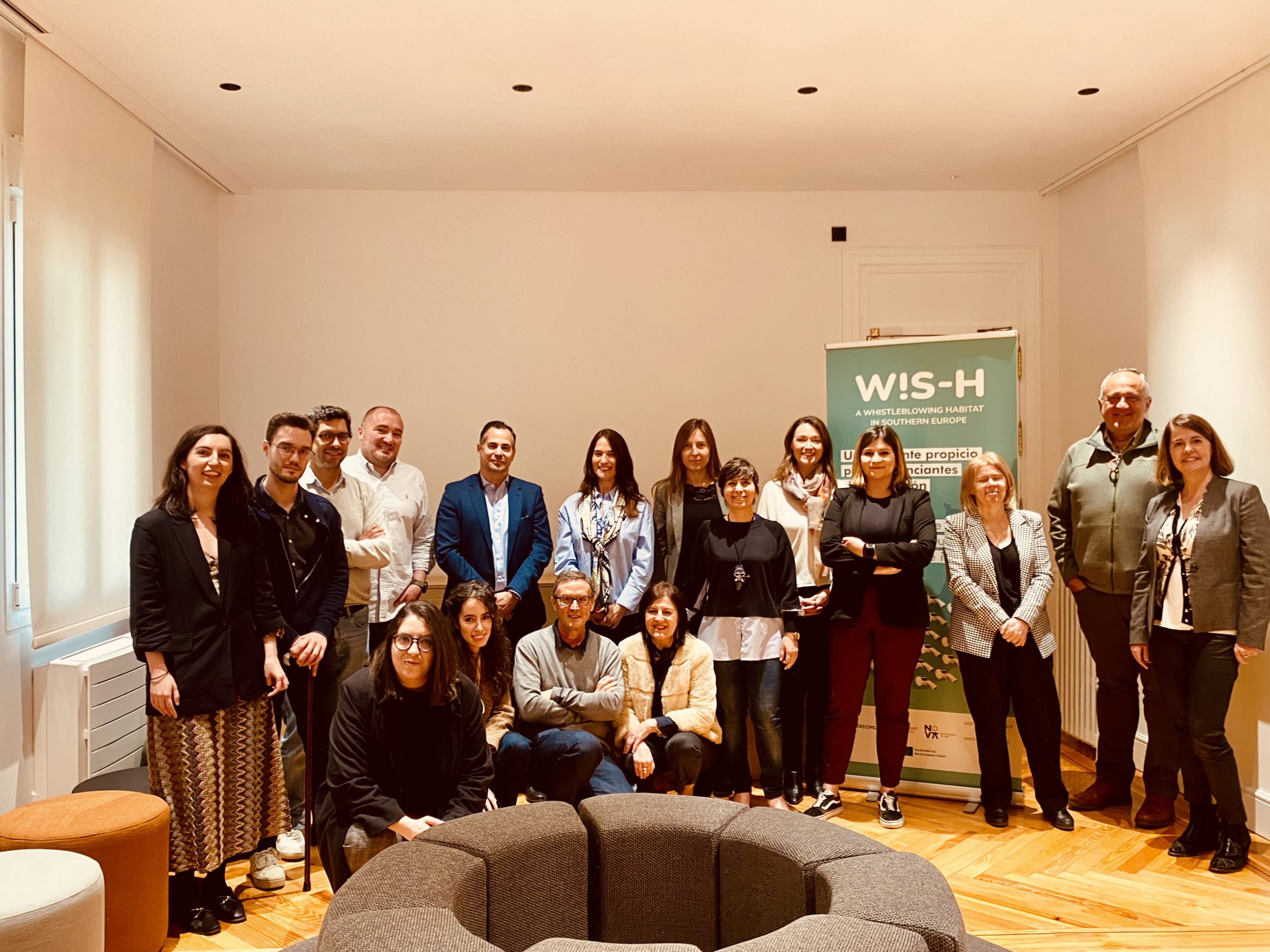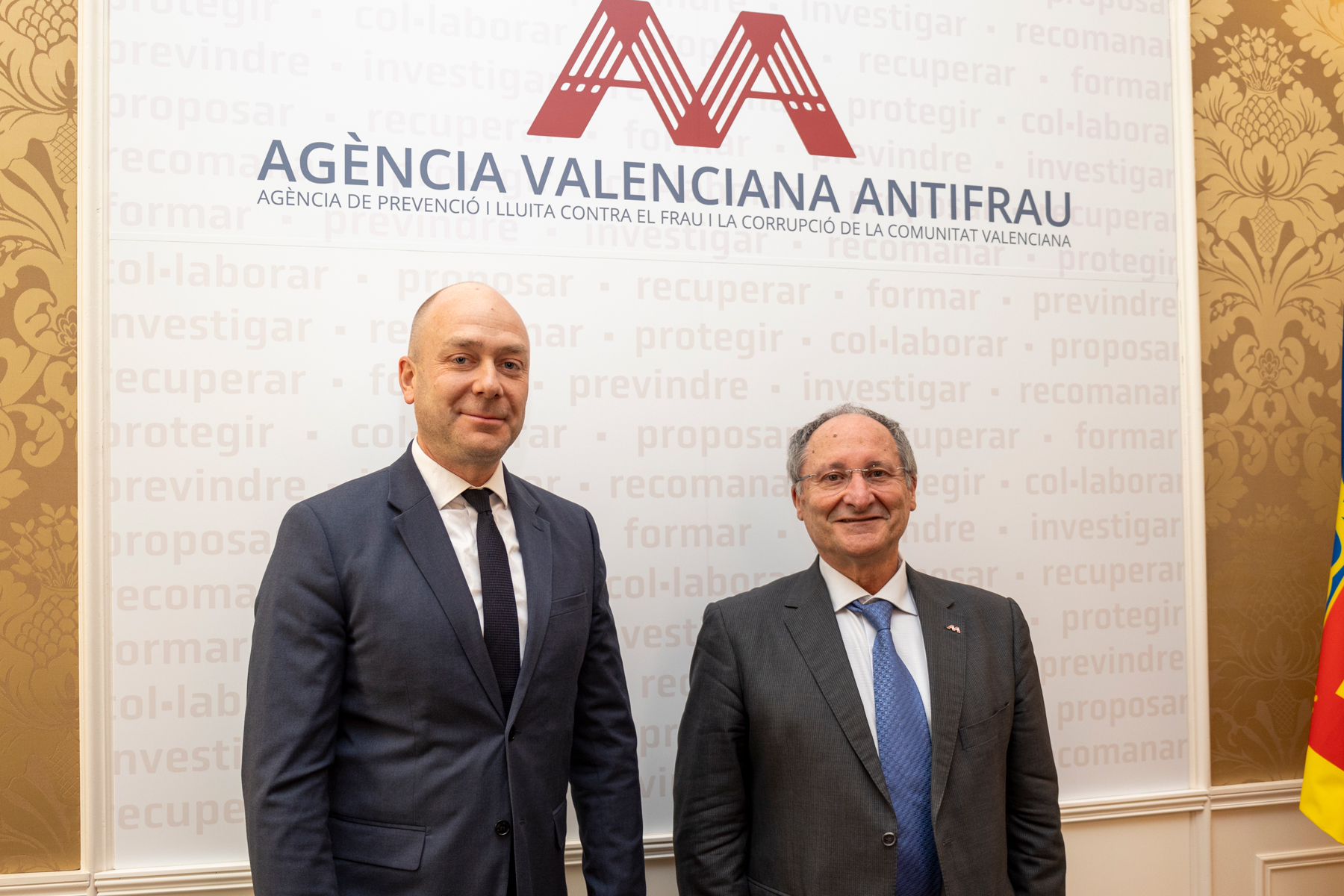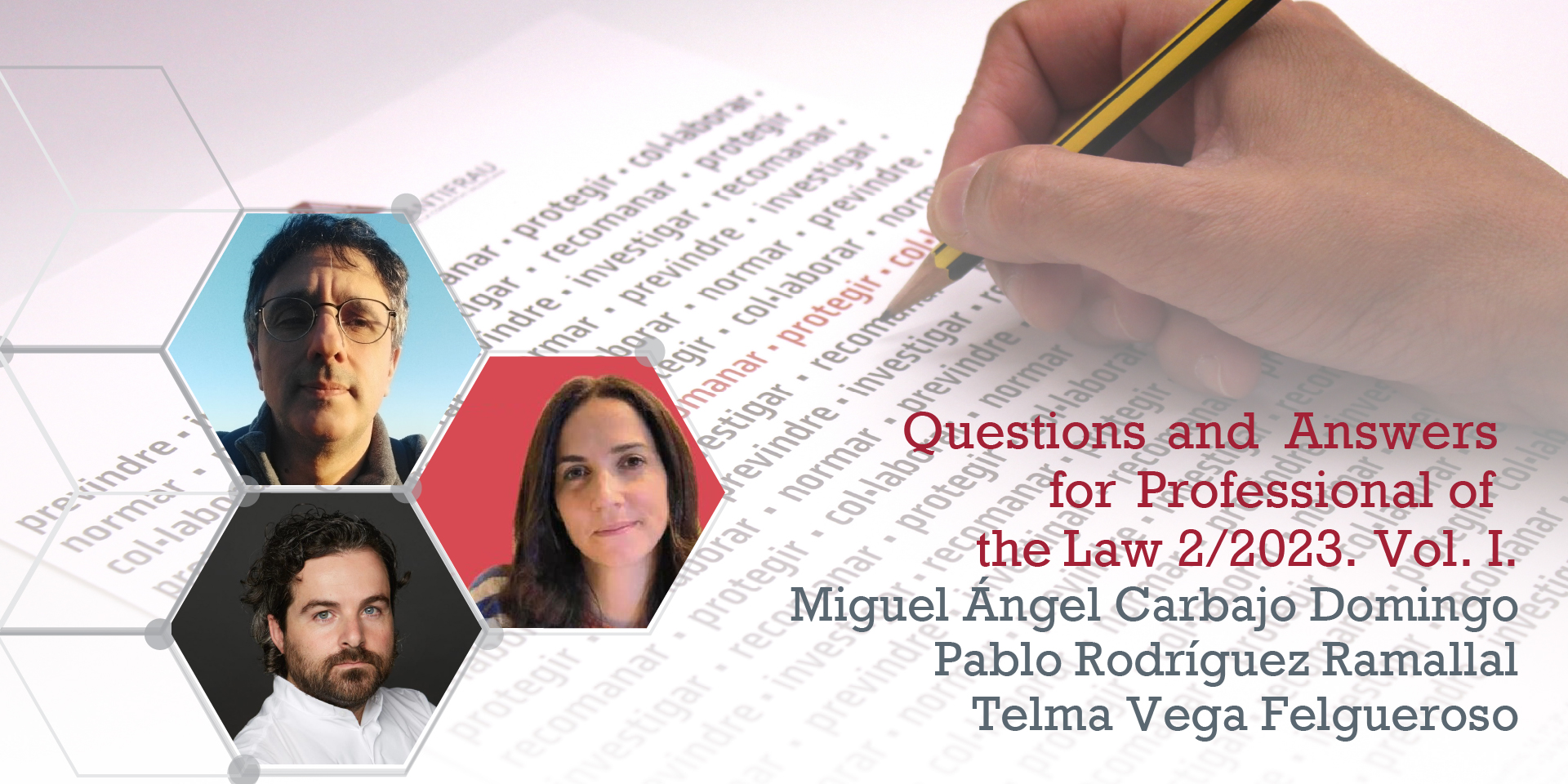Coordinated by Juan Vega Felgueroso, Lawyer of the Valencian Anti-Fraud Agency
Law 2/2023, which regulates the protection of persons who report regulatory and anti-corruption breaches, has established a series of obligations and original investigation procedures that were previously unknown in our legal system. These novelties and the absence of normative and doctrinal references give rise to numerous doubts in the application of this Law by legal operators, a circumstance that advises the exposition and systematization of those aspects that offer greater doubts to these professionals in a series such as the one that begins today.
The questions and answers for professionals that will be offered in this set of articles are a compilation of the doubts that are most frequently raised by those responsible for Information Systems, as well as by Lawyers of Public Administrations or by Lawyers in free and independent practice or, in short, by all legal experts. These questions and answers, without prejudice to their possible academic interest and for the public, are therefore eminently professional in nature, and they avoid historical explanations and extensive doctrinal debates to systematically and concisely establish the solutions to the gaps that arise from Law 2/2023.
The series of questions, which will try to follow a homogeneity, begin in this first chapter with three topics of obvious importance for those responsible for the systems:
- First, the particularities of the expiry in the procedure of Law 2/2023 will be analyzed, which will be presented by Miguel Ángel Carbajo Domingo, Contentious-Administrative Magistrate, by answering the following questions:
- What is the deadline for fully processing the investigation file of Law 2/2023?
- Can this deadline be extended in order to fully process the investigation file?
- What happens if the investigation has not been initiated within three months of the complaint being made?
- What happens if the investigation proceedings had already been initiated within 3 months, but the procedure has not been completed within that period?
- Secondly, Pablo Rodríguez Ramallal, head of contracting and purchasing in a public company of the City of Gijón and lawyer of the ICAM expert in COMPLIANCE, will shed light on the new evidence of the interview with the affected party, an issue with which the legislator comes to include the principles of the Criminal Law, orality and concentration, in the administrative procedures of Law 2/2023, through the following issues:
- Is the new test of the interview with the affected party contemplated in all the investigation procedures of Law 2/2023?
- Is it imperative in all procedures to conduct an interview with the person concerned?
- What is the consequence for the investigation procedure if the person concerned is not interviewed?
- Finally, Telma Vega Felgueroso, Labour and Social Security Inspector in Barcelona, will respond to the problem regarding the scope of complaints in the field of labour law in Law 2/2023, and this by offering answers to the following questions:
- Should complaints of serious or very serious infringements with economic damage to Social Security be processed?
- Should complaints of minor infractions received through labour law reporting channels be processed in accordance with Law 2/2023?
- Do all complaints that are made in the field of labour law give rise to the protection of the complainant?
Without further ado, here are these first 10 questions and answers for Law 2/2023 professionals.
The expiry date in Law 2/2023.
MIGUEL ÁNGEL CARBAJO DOMINGO.
Magistrate of the Contentious Court 3 of Oviedo.
Law 2/2023, due to the sensitivity and transcendence of the matters it deals with, has chosen to establish a rigid expiry system that must be taken into consideration by those responsible for information systems, both public sector entities (City Councils, Autonomous Communities, General State Administration, Universities, etc.), as well as by the Independent Authority for the Protection of Whistleblowers (AAI) or, where appropriate, the corresponding regional authorities or bodies.
1. What is the deadline for the full processing of the investigation file?
The law establishes that, both in the regulation of the information management procedure of the City Councils, Autonomous Communities, AGEs, Universities, etc. (art. 9) and, where appropriate, in the procedure regulated for the AAI or regional authorities (art. 20), the term for the investigation file will be fully processed within 3 months from the receipt of the complaint, and in those cases in which the informant is not acknowledged (think of voice messaging systems or through postal mail) the period of three months will be counted from the period of 7 days from the date the complaint was made.
2. Can the deadline for the full processing of the investigation file be extended?
In the case of information management procedures of the City Councils, Autonomous Communities, AGEs, Universities, etc., it is possible (art.9), but exclusively for another three additional months, and the reason for such extension must be justified and may only be based on the complexity of the investigation.
On the other hand, there is no legal provision for an extension of the 3-month period for the AAI or regional authorities, which must in any case resolve the investigation procedures within 3 months (art.20).
3. What happens if the investigation has not been initiated within three months of the complaint being made?
In this case, an investigation procedure can no longer be initiated in any case, and this is because there is a mandatory rule, the one contemplated in article 32.4 of Law 2/2023, which requires the suppression of complaints received that have not been processed within 3 months, and this both for the information received by the City Councils, Autonomous Communities, AGEs, Universities, etc., as the case may be for those received by the AAI or regional authorities.
4. What happens if the investigation proceedings had already been initiated within 3 months, but the procedure has not been completed within that period?
In this case, contrary to the answer to question 3, if the investigation proceedings have been initiated within the 3-month period, but have not been resolved within that period of time, the file will expire and must be declared time-barred, but a new file could be initiated provided that the limitation period has not expired. and this is because the suppression imposed by article 32.4 of Law 2/2023 is only for complaints in which the proceedings have not been initiated since the formulation of the same. The way in which it is considered that investigation actions have already been initiated will depend on the system designed under Article 9 for the EELL, CCAA, AGE, etc. In the case of the AAI or a similar regional body, the initiation of the investigation proceedings shall result from the issuance of an admission of the complaint for processing in accordance with Article 18.
The interview of the affected party in the investigation file: issues and nullity of law.
PABLO RODRÍGUEZ RAMALLAL
Responsible for contracting and purchasing in a public company of the city of
Gijón . ICAM Lawyer, the expert in Compliance.
Law 2/2023 has created a right for the person affected by the communication to conduct a personal interview. The interview is regulated in the investigation phase, in article 19.3 of Law 2/2023, which establishes that the interview must be carried out with absolute respect for the presumption of innocence, inviting the affected person to present their version of the facts and to provide the means of proof they consider appropriate.
With this measure, the legislator has included the principles of orality and concentration in the administrative investigation procedure of Law 2/2023, which is a striking novelty, since the administrative procedure is traditionally governed by the written form.
5. Is the test of the interview of the affected person contemplated in all the investigation procedures?
The interview is imperatively regulated for the AAI and the regional offices and agencies with competence in these matters, to which article 19.3 of Law 2/2023 is directly applicable.
In the case of public sector entities (EELL, CCAA, AGE, related or dependent bodies, public universities, etc.) they have the power to organize their own investigation procedure, and therefore for these entities the interview will only be mandatory when they have decided to do so when approving their information management procedure (art. 9).
Examples of administrations that have included the interview as necessary andperative in their management procedure include the City Council of de Bejís and Administration of the Autonomous Community of the Region of Murcia.
In other regulatory cases, such as the Spanish Data Protection Agency, it has been decided not to configure the interview in an imperative way, but as optional at the request of the affected person.
6. Is it imperative in any case to interview the person concerned?
For the AAI and the regional offices and agencies with competence in these matters, which must apply Article 19 of Law 2/2023, the interview with the affected person is mandatory as a general rule. The exception will result in those cases in which it is not possible to do so. The most common situation in which it is impossible to carry out the interview will be when the affected person refuses to carry out the interview.
The impossibility of conducting the interview must be accredited and proven with total certainty, and vague and generic formulas cannot be accepted to declare the impossibility of conducting the interview.
7. What is the consequence if the affected person is not interviewed?
Failure to conduct the interview, except when there is an impossibility, will lead to the nullity of the proceedings, and this is because the absence of an interview does not constitute a mere procedural defect that annuls it, but is configured as a genuine right to defense of the affected party, and in this case the suppression of this right causes defenselessness and thus the nullity of the proceedings.
For this reason, those responsible for the information system must take special care to carry out this test, and this to avoid nullity defects that may affect all actions.
Complaints in the field of labour law.
TELMA VEGA FELGUEROSO Labour and Social Security Inspector in Barcelona. Associate Professor at the Universitat Pompeu Fabra.
The first problem faced by the person in charge of an internal information system when receiving and processing a complaint in the field of labour law is to determine whether or not a complaint is susceptible to being processed in accordance with Law 2/2023. The answer, as we shall see, is not unique, but requires an initial prior analysis of the complaint, as will be explained in the following responses.
8. Will complaints of serious or very serious infringements with economic damage to Social Security be processed?
This case, the simplest, arises when the complaint received can be classified as serious or very serious and the facts denounced cause economic damage to the Social Security. In this case, without a doubt, the information received in accordance with Law 2/2023 must be processed and the informant will also have the right to protection.
An example that serves to illustrate this issue would be the receipt of a communication regarding the performance of work activities without a contract, or without registration, or in a fraud of working hours; in all these cases, fraud causes economic damage to the contributions owed to Social Security, resulting in the full application of Law 2/2023 due to the material scope of article 2.
9. Should complaints of minor infractions received through labour law reporting channels be processed in accordance with Law 2/2023?
In most cases, the person in charge of the system will be faced with cases of communication of infractions in matters contemplated in the Law on Infractions and Sanctions of the Social Order (LISOS). In view of the complaints received, the content of the complaints must be analysed on an indicative basis, and this is because the LISOS includes a list of infractions classified as minor. And we must remember that minor infringements are not included in the material scope of Law 2/2023, which only contemplates very serious or serious infringements in its application.
A simple case of minor infringement that would not allow the application of Law 2/2023 would be the employer’s act of not displaying the current work calendar in a visible place in the workplace (minor infringement LISOS 6.1)
However, in many cases, classifying the infringement as either serious or minor will be complex, hence the importance of the person responsible for the system being a person who is not only upright but also duly qualified. For example, to delimit the classification between minor and serious infringement in the infringement of article 11.4 of the LISOS, on non-compliance with occupational risk prevention regulations requires the application of rigorous judgment from both a legal and technical point of view.
10. Do all complaints that are made in the field of labour law give rise to the protection of the complainant?
There is a third group of complaints in the field of labour law in which, in the case of a complaint about serious or very serious breaches, which must be dealt with, will not, however, give rise to the protection of the complainant.
This is the case of the person who reports a serious or very serious labour breach, but such non-compliance only affects the complainant. In these cases, Law 2/2023 expressly excludes from protection (article 35.2.B) persons who report facts in relation to interpersonal conflicts or that affect only the informant and the persons to whom the communication or disclosure refers.
The assumption that allows us to exemplify this situation arises in those complaints that may be received in the matter of workplace harassment or sexual harassment. These complaints will have to be processed, as it is a very serious infraction, but as it is a complaint for an interpersonal conflict, it would not be appropriate to grant protection to the complainant.
Miguel Ángel Carbajo Domingo, Contentious-Administrative Magistrate
Pablo Rodríguez Ramallal, ICAM lawyer expert in COMPLIANCE
Telma Vega Felgueroso. Labor and Social Security Inspector in Barcelona




